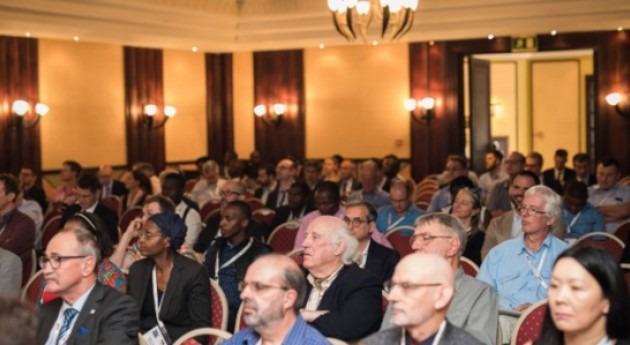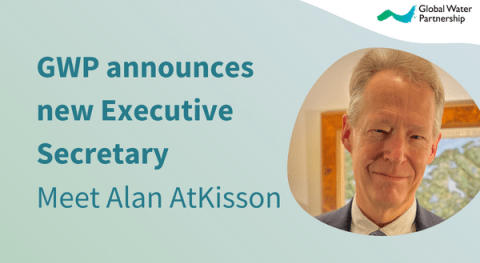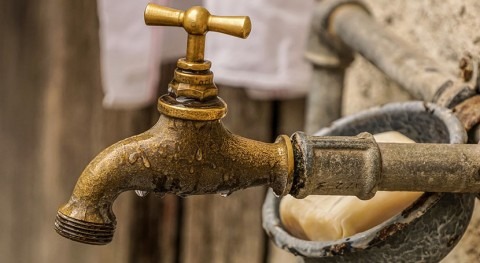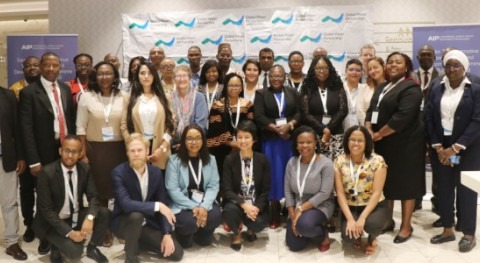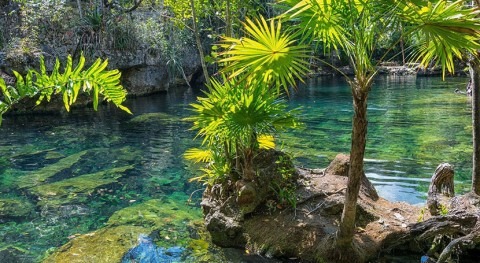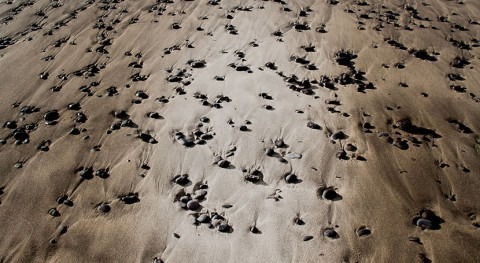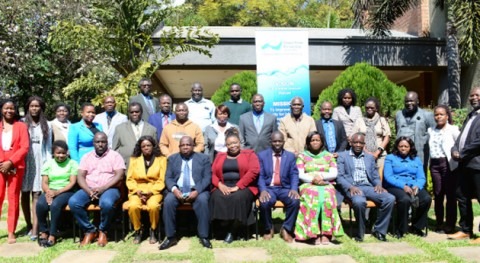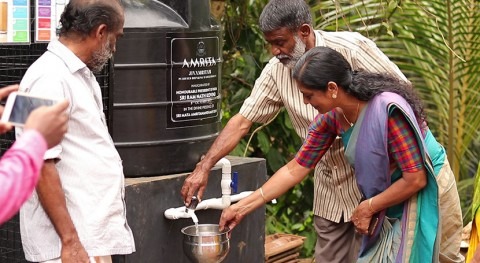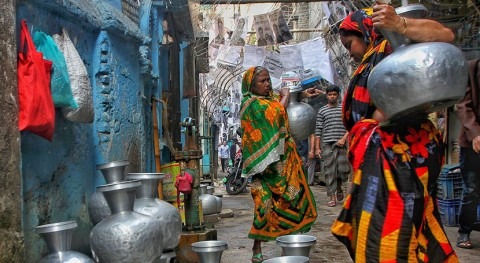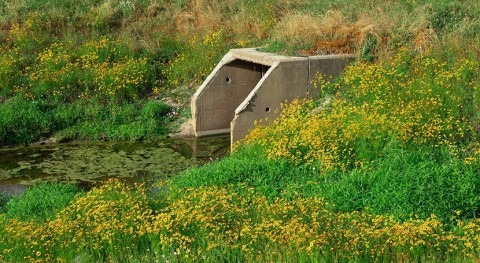Speaking during the plenary session of the Hydro Africa 2019 Conference, Dr. Tjipangandjara noted the strong link amongst the Water-Energy-Food sectors, and cited that the under-development in the three sectors hinders industrialization, economic growth and employment.
“In order to provide for the continent’s ever-increasing population the need for industrialization, economic growth and employment creation can never be overemphasized, and in all these processes water security is critical", said Dr. Tjipangandjara. “Factors such as non-homogenous availability of water resources, absence of policies and legislation, a shortage of skilled people to manage projects, lack of water resources management and inability to develop bankable projects are among the threats to water security”.

Dr Kuiri Tjipangandjara (GWPSA) Board Chairman cutting the ribbon to officially open the exhibition.
He added that climate change, extreme climate variability, particularly droughts and floods have also many challenges to water security, given that the African continent is still lagging behind in climate change adaptation and mitigation. He further reiterated the important role of climate-resilient infrastructure, particularly multipurpose hydropower schemes in achieving sustainable development, underscoring the vital role played by viable transboundary water schemes in the process.
Sentiments on the importance of hydropower projects were also echoed by Ms. Alison Bartle, Director of Aqua-Media International Limited, who in her opening remarks, applauded the remarkable progress the African continent has made in hydropower and multipurpose storage schemes. She highlighted that Africa has at least 30 very large dams under construction in 11 countries.

Ms. Alison Bartle, Director of Aqua-Media International Limited delivering the opening remarks.
“The present hydro capacity for the continent is more than 33 000 Megawatts in 45 countries. The completion of hydro capacity schemes under construction in 33 countries is expected to boost Africa’s hydro capacity by at least 75%, she said. Ms. Bartle gave a detailed account of the hydro schemes and multipurpose project in Africa pointing out the progress being made in the SADC Region. She, however, bemoaned the large percentage of Africa's population which does not have access to electricity citing the possibility of an average of 40 % decline in water supply by 2030.
The Africa 2029 Conference, titled “Water Storage and Hydropower Development for Africa”, was held in Windhoek Namibia on 2- 4 April 2019. The conference provided a platform for delegates to exchange knowledge and experiences on hydropower and multi-purpose projects, including challenges, solutions as well as best practices for the projects.
Climate change, extreme climate variability, particularly droughts and floods have also many challenges to water security
The more than 500 participants from 52 nations also got the opportunity to discuss issues around project preparation, water resources management, dam safety, environmental and social issues, the sustainability of hydropower schemes and multipurpose projects, capacity building, and hydropower in synergy with other renewable forms of energy.
The Hydro Africa 2019 Conference was the third international conference focusing on water storage and renewable energy development in Africa, co-hosted by the International Commission on Large Dams (ICOL) and Aqua~Media International- Publishers of Hydropower and Dams Journal. The two preceding regional conferences in Africa took place in Addis Ababa, Ethiopia in 2013 (under the auspices of the African Union), and in Marrakech, Morocco in 2017 (under the High Patronage of the King).
GWP as a key player in Integrated Water Resources Management (IWRM) and Climate Change Adaptation and Mitigation was invited to chair the session on Climate issues and mitigation strategies. Through the Global Water, Climate and Development Programme (WACDEP), GWP is responding to the climate change challenge by supporting countries to integrate water security and climate resilience in their development planning processes, build climate resilience and to adapt to a new climate regime through increased investments in water security.



